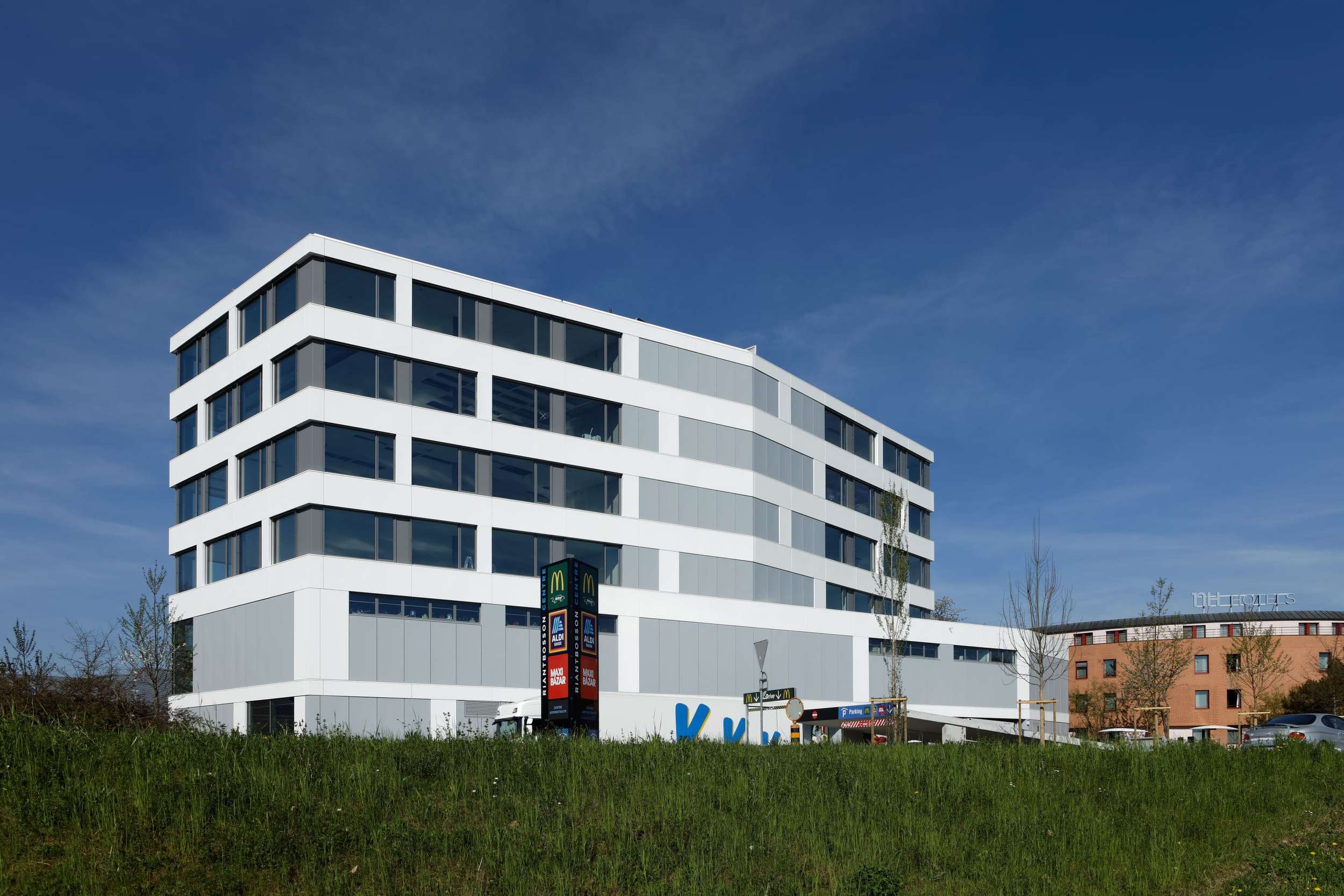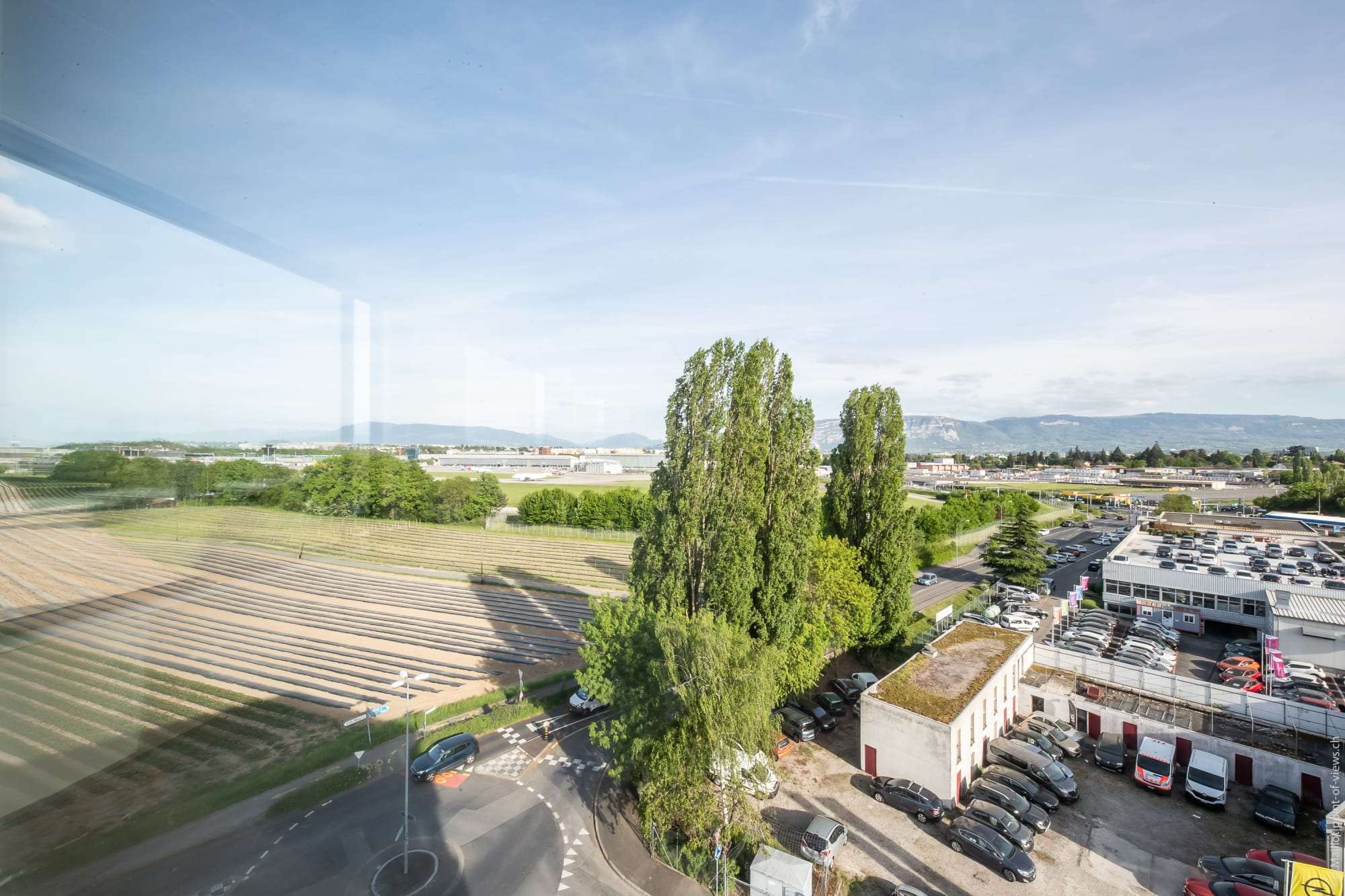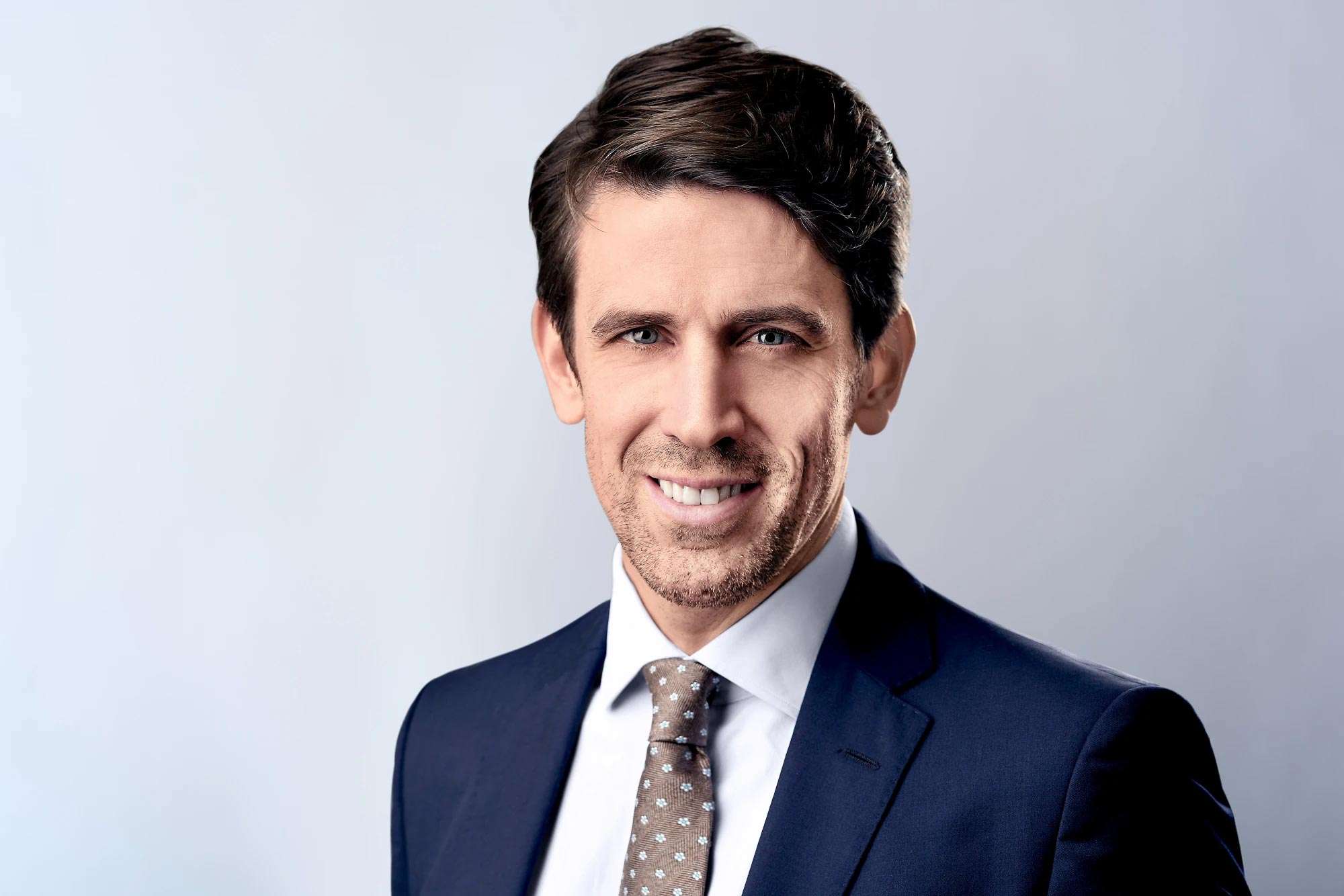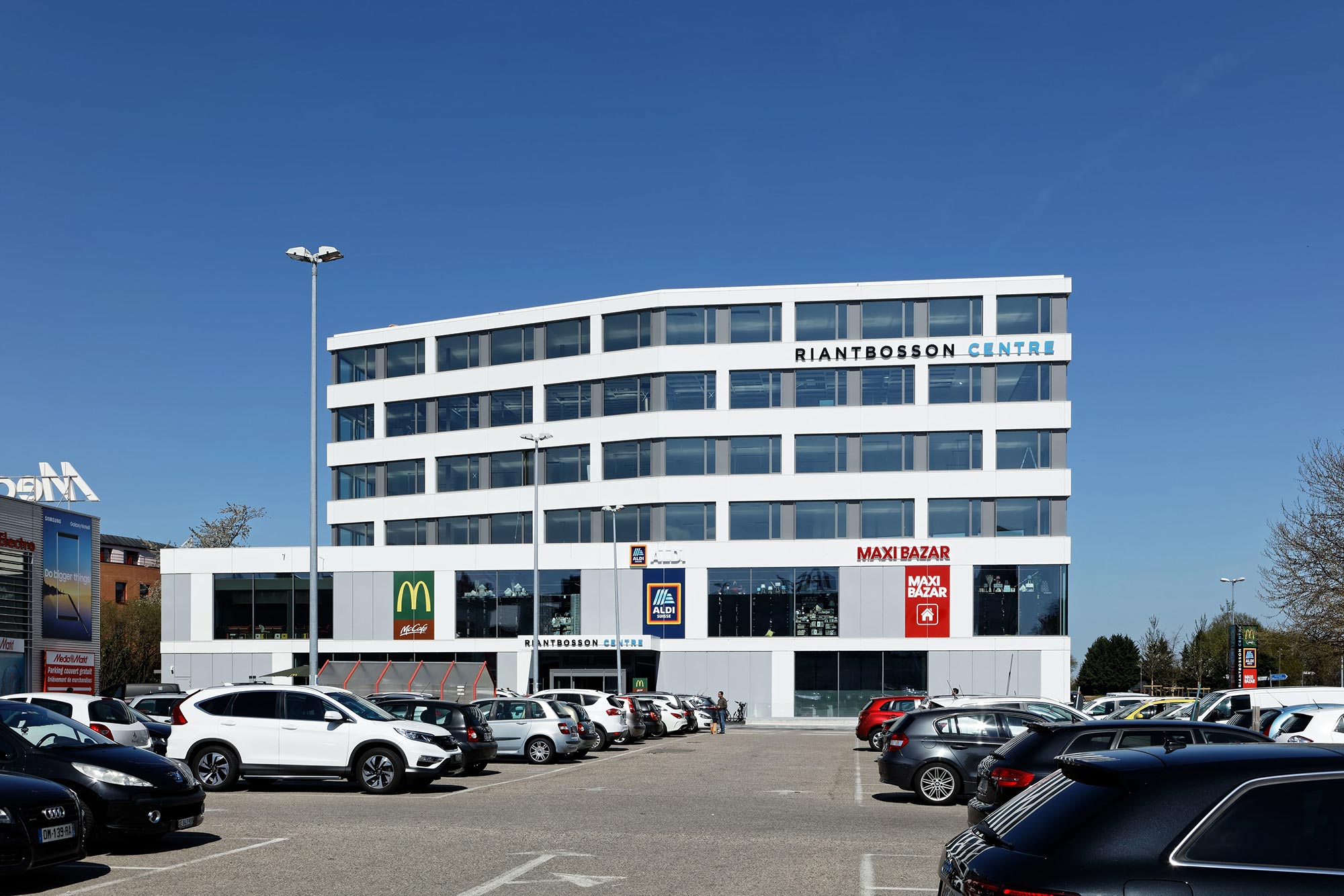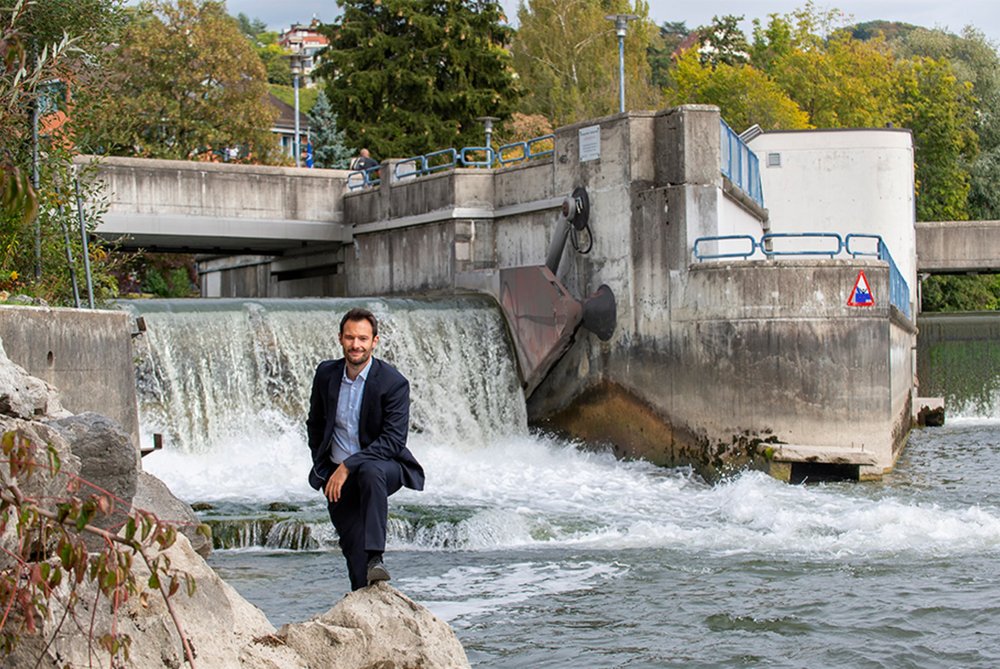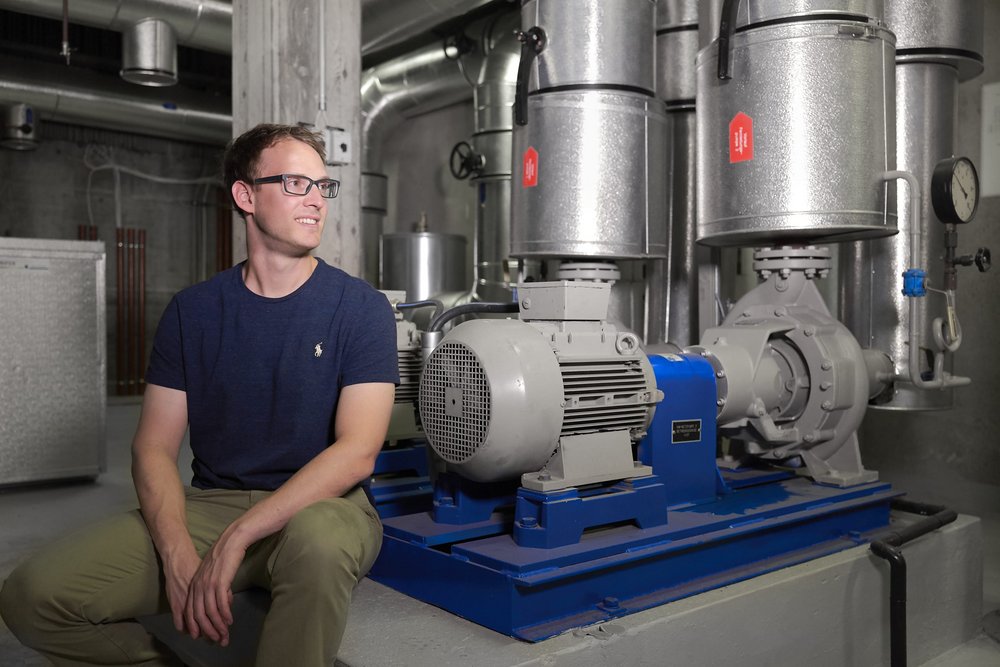Story
Riantbosson Centre – modern property and a power plant in one
There are large-scale construction projects under way in the south-west towards Lancy in the districts of Praille, Acacias and Vernets (PAV), and towards Vernier, Meyrin and the airport (VMA) in the north-west. Swiss Prime Site Immobilien sees great investment potential in the region. The company is currently working on two major projects worth over CHF 500 million. The «Espace Tourbillon» (in the Plan-les-Ouates industrial park) and Alto Pont-Rouge» (on the edge of the PAV districts) are due to be completed in 2021 and 2022, respectively. Two properties, the «Geneva Business Terminal» and «Riantbosson Centre» in Meyrin, were added to the company’s portfolio in 2018 already.
Sustainable internal and external supply of heating and cooling
Swiss Prime Site Immobilien has designed, planned, and constructed the «Riantbosson Centre» modern office and commercial premises at the business park on Chemin de Riantbosson. The ultra-modern office space and commercial and retail premises are just a stone’s throw from Geneva airport. In addition to the very well-developed location, sustainability and the careful use of resources are some of the unique features of the building. In line with the company's strategy to develop sustainable real estate sites that are well equipped for the future, the property has been provided with a unique characteristic: It supplies «itself» with heating or cooling, year-round. But that is not all! During construction of the «Riantbosson Centre», the ground source heat exchanger was designed on a scale so that, if necessary, all the neighbouring buildings in the business park could benefit from this sustainable installation.
This unusual project was overseen and managed by Jean Megow, Head of the Geneva offices of Swiss Prime Site Immobilien. In the following interview, he shares his views on urban development, the needs of tenants, and sustainability.
Jean Megow, why did Swiss Prime Site Immobilien decide to invest in a district on the outskirts of Geneva?
Geneva will experience a major urban metamorphosis over the next few years and decades. The city is expanding. Former industrial and commercial districts are being transformed into residential and business areas. This is already happening in the municipalities of Praille, Acacias and Vernets, collectively known as PAV. The companies that established themselves there around 50 years ago are now moving to outsourced industrial and commercial parks. This creates space for Geneva to continue growing, both as a city and as a business centre. As part of this development, Swiss Prime Site Immobilien has also decided to invest in this outlying area, in order to offer modern and frequently flexible sites to companies moving out of the city centre.
What is it that makes the Riantbosson Centre attractive to Swiss Prime Site and also to tenants?
For a long time, the only remaining plot of land with development potential in the existing commercial district lay unused. A number of complicating factors meant that developing the site had been impossible for some time. It was only once it was acquired by Swiss Prime Site Immobilien that planning gained any momentum. The location and accessibility of the site were deciding factors for the investment. Riantbosson is located directly adjacent to a major road leading into Geneva, the Route de Meyrin. There is a tram stop within walking distance. The airport terminal is therefore just a 10-minute journey by public transport. Growing passenger numbers mean that the airport is likely to expand rapidly in the next few years, so we expect that office and commercial premises around Geneva airport will benefit from the strong demand.
Sustainability is an important element of Swiss Prime Site Immobilien development projects. Is that also true for the Riantbosson Centre?
Sustainability is one of the key principles of the Swiss Prime Site business strategy. This strategy is supported by the Group’s Board of Directors and executive management team, who consider it to be highly important. When it comes to developments within our own business, we are particularly careful to ensure that we always implement state-of-the-art technologies and apply current standards. We build properties that are designed to last several decades, and which provide a comfortable environment for their occupants. So the planning and implementation processes also need to be sustainable and take a long-term view. We can quite justifiably call the Riantbosson Centre a highly efficient and sustainable property. We explored and used new ways of doing things, particularly with building technologies. The canton of Geneva has classified the Riantbosson business park as an «eco-industrial park» and places great emphasis on creating meaningful synergies among the various companies located there.
Could you provide a bit more detail?
The energy needed to heat and cool the building is produced entirely from renewable sources. To provide this energy, four wells, with a depth of up to 50 metres, were drilled in the ground beneath the building. They extend down to the groundwater and allow the exchange of heat and cold. There is also a photovoltaic system installed on the roof, which generates electricity to power the heat pump and operate the wells. This allows us to supply the property with zero emission energy all year round. Even better, we identified early on – whilst preparing the feasibility study – that the energy produced from these renewable sources considerably exceeded our own needs. As part of our long-term planning, we therefore designed and built the system on a scale that would allow other buildings to be connected to it in the future. The Riantbosson Centre therefore exceeds the requirements of the canton by a significant margin.
How much energy is the system capable of producing?
In concrete terms, it could supply the energy needs of all the buildings in the business park within a 200 metre radius.
Does it pay for Swiss Prime Site Immobilien to take such a radically sustainable approach to construction? Is this type of heat recovery system type cost-effective?
During the planning and development phase, we issued an invitation to tender for the energy supply. EKZ, the energy provider for the canton of Zurich, was awarded the tender. Their offer was comprehensive, holistic and very convincing. They succeeded in proposing the most attractive terms for both us as the client and for our tenants. The tenants benefit from heating and cooling delivered at more attractive prices than would be possible with conventional systems. Swiss Prime Site Immobilien views this as an investment with an investment horizon of several decades. Moreover, this sustainable solution increases the appeal of the property. Over the coming decades, it offers a «triple win» situation: for tenants, for Swiss Prime Site Immobilien, and for the environment.
Was there any significant resistance to the project and the idea that has now been implemented at the Riantbosson Centre, or were you also supported? If so, from whom?
There has been no resistance because it was obvious that this solution was the right one. It was particularly well received by the energy authority of the canton of Geneva.
Have you already managed to persuade the owners of the neighbouring buildings to connect their properties to the Riantbosson Centre?
Yes, we have. EKZ has already connected one of the neighbouring buildings to the system, and is in discussions with several other users. The entire business park is expected to be connected to the system in the next three to five years.
Building for the future
Swiss Prime Site Immobilien is playing a pioneering role in terms of sustainability in the real estate sector. The company has several other projects in the pipeline, which address various aspects of building for the future. They include long-term urban development (Alto Pont-Rouge, Lancy), workplaces of the future (YOND, Zurich) and climate-adaptive construction (JED, Schlieren).
